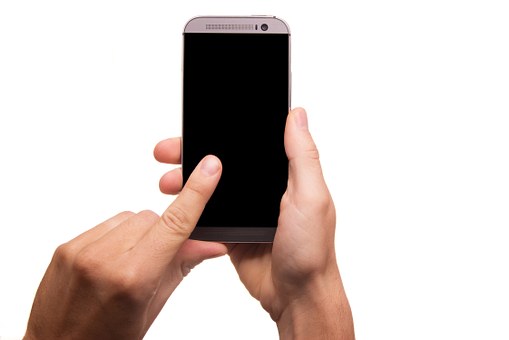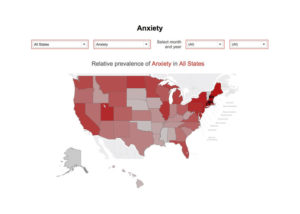Would you be willing to close your eyes for five seconds while driving?
- Traffic observation: 7% of all drivers are distracted by their cellphones
- Forsa survey: More than half use their cellphones regularly at the wheel
- DEKRA: Keep your hands on the wheel and your eyes on the road
More than half of all German car drivers who own a cellphone regularly use it while driving as well. This was shown in a recent Forsa survey conducted on behalf of the expert organization DEKRA. According to this survey, 55% use their smartphones at the wheel at least every now and then. In addition, an average of 7% of all drivers are distracted by their cellphones while driving at any point in time. This was found by DEKRA Accident Research in a traffic observation project across Germany. These concerning figures were presented at the International Motor Show in Frankfurt (IAA).
In May 2017, DEKRA Accident Research’s teams travelled to nearly all federal states in Germany and observed over 15,000 drivers based on how distracted they were. At 7%, smartphone use was by far the most common type of distraction. This was also more common in urban areas (7.1%) than outside urban areas (6.7%) or on the highway (5.8%).
70 meters of blind driving when distracted for five seconds
“Unfortunately, too many drivers still do not realize how dangerous it is to use a smartphone while driving,” said DEKRA Management Board member Clemens Klinke. Studies and estimates from Germany and the USA suggest that one in ten road deaths occur in accidents are caused by distraction. This corresponds to roughly 320 deaths in Germany every year – and this is a lot more than the number of deaths caused by drink driving (2016: 225).
“You need to ask yourself: Would you be willing to close your eyes for just five seconds while driving? I’m quite certain that hardly anyone would,” said Klinke. “But for many, looking at your smartphone while driving is perfectly normal although the effect is virtually the same.” Those who look at their phones for three seconds while driving at 50 km/h instead of keeping their eyes on the road drive almost 42 meters blind within this time. This goes up to nearly 70 meters over a period of five seconds.
DEKRA recently demonstrated the consequences of blind driving on a closed course. The participants had to drive through a course at 30 km/h while texting on their smartphones. They were wearing eye-tracking glasses following their eye movements with a camera that showed what the user was looking at.
“For instance, many participants did not react at all to a ball that suddenly rolled across the road,” reported DEKRA Management Board member Klinke. “If you think about the fact that often a child is running after a ball onto the road, it is clear how dangerous being distracted is in this case.” In addition, multiple participants even drove past a red light. “These are typical driving mistakes that are caused by distraction and could lead to serious accidents,” said Klinke.
Psychologists refer to what is known as “inattentional blindness.” In this case, people focus on their smartphones to the extent that they completely fail to perceive environmental stimuli or indications of potential risks – often with disastrous consequences.
The problem is by no means limited to young drivers
Younger drivers are most likely to be willing to use their cellphones at the wheel. 85% of those aged between 18 and 29 do this according to the Forsa survey conducted on behalf of DEKRA. But the problem is by no means limited to young drivers. Among those aged 30 to 44, over three quarters of respondents (77%) admitted that they use their phones at least some of the time while driving. This also was true for the majority of those aged 45 to 59 (54%). Even among the age group over 60, a third of drivers (34%) use their smartphones at the wheel.
Incoming texts or WhatsApp messages were the most common reason for using a smartphone. Over a third of all drivers (34%) read texts while driving at least some of the time. A quarter of them (25%) take calls without hands-free equipment. One in five people (20%) write texts themselves, and around one in six (16%) make calls without hands-free equipment. Fewer people use social networks at the wheel (6%) or play on their phones (3%).
Distraction could reverse positive trend
“Many measures have led to major successes in the area of road safety over the last few decades – ranging from safety belts and the obligation to wear one to airbags and systems, such as ABS and ESP, and better road planning and rescue services,” said DEKRA Management Board member Klinke. “But we are dealing with this issue far too lightly. Every traffic fatality is one too many. And the growing problem of distraction at the wheel could stop or even reverse the downward trend in the number of deaths on the road. We can’t allow this to happen.”
DEKRA experts are thus making a clear call for all drivers to keep their hands on the steering wheel and their eyes on the road. “We urgently need to raise awareness of this problem in an entirely new way,” said Klinke – while focusing on social change as with alcohol. “Driving back home after a fun night of drinking wine and beer was considered harmless in the past. This has drastically changed – such behavior is no longer socially acceptable. As far as smartphone distraction at the wheel is concerned, I think that we need society to oppose this in the same way.”
Large majority of drivers in favor of more checks
More checks are also an option that could help here. In this survey, only 4% of all German drivers said that they had already been stopped or checked by the police because they were using their cellphones at the wheel. In 2015, according to the latest numbers available from Germany’s Federal Motor Transport Authority, a good 363,000 offenses were reported to the Federal Register of Driver Fitness in Flensburg. But there are bound to be several times that many cases that go unnoticed.
Drivers have a clear position: 85% were in favor of more frequent checks to crack down on drivers using their phones in the Forsa survey. And even among those who regularly use their smartphone while driving, four in five (79%) were in favor of more frequent checks. Incidentally, more than half of all drivers (56%) found that a fine of EUR 60 and a penalty point was too lenient for getting caught with a phone at the wheel. In many other European countries, penalties are a lot tougher.
Distraction among cyclists and pedestrians is also a problem
Smartphone distraction is a problem that does not only concern drivers. Other road users like cyclists and pedestrians are often distracted as well, causing critical situations on the road as a result. In 2016, DEKRA Accident Research conducted a survey in six European capitals and found that 17% of all pedestrians were distracted by their smartphones while crossing the road.
Joint campaign by DEKRA and AUTO BILD magazine
DEKRA is cooperating with the editorial team at AUTO BILD magazine to address the urgent need to raise awareness of distraction on the road. The two partners are calling on people to be more aware of the risks that exist on the road with a joint sticker campaign based on the slogan “Handy weg – dein Leben zählt!” (“Don’t use your phone – your life counts!”). “We reach more than 3 million readers with AUTO BILD every week. More than 7 million users use our online service every day. This coverage also means responsibility. We know this and act accordingly,” said Tom Drechsler, Editor-in-Chief of the AUTO BILD Group.
DEKRA at the IAA in Frankfurt
At the DEKRA stand at the IAA International Motor Show in Frankfurt (Hall 8.0, Stand D33), visitors will also be informed about the dangers of driver distraction. On the website www.dekra-smarter-traffic.com, DEKRA experts explain the “DOs and DON’Ts” concerning smartphones and traffic.
About DEKRA
DEKRA has been active in the field of safety for more than 90 years. Founded in 1925 in Berlin as Deutscher Kraftfahrzeug-Überwachungs-Verein e.V., it is today one of the world‘s leading expert organizations. DEKRA SE is a subsidiary of DEKRA e.V. and manages the Group‘s operating business. In 2016, DEKRA generated sales totalling approximately 2.9 billion Euros. The company currently employs more than 39,000 people in more than 50 countries on all five continents. With qualified and independent expert services, they work for safety on the road, at work and at home. These services range from vehicle inspection and expert appraisals to claims services, industrial and building inspections, safety consultancy, testing and certification of products and systems, as well as training courses and temporary work. The vision for the company‘s 100th birthday in 2025 is that DEKRA will be the global partner for a safe world.
SOURCE DEKRA SE




